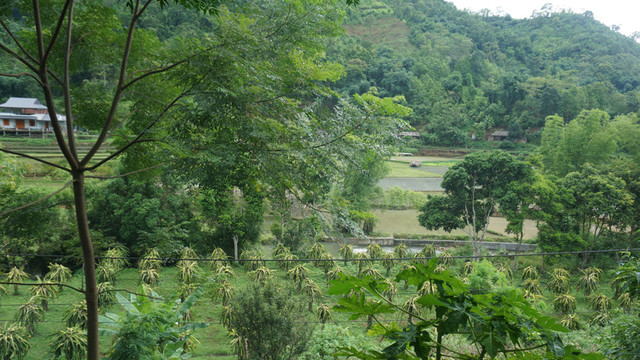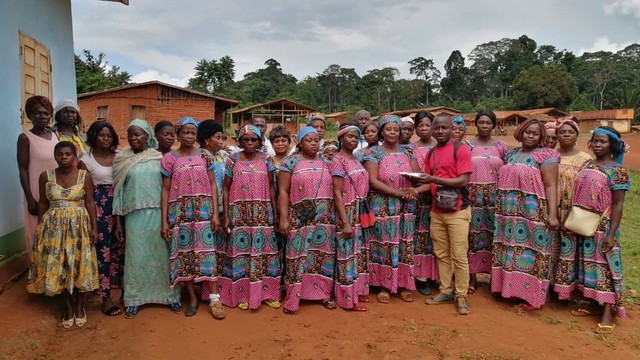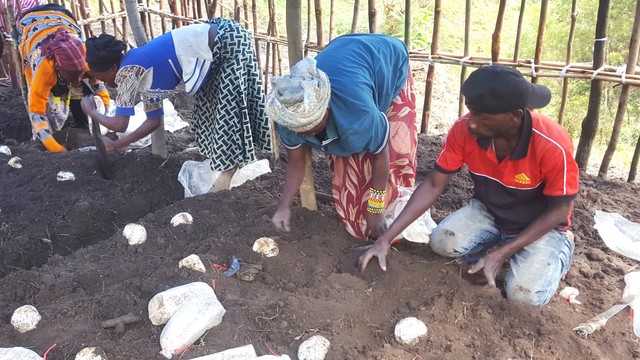Biodiversity on the brink: local people must shape nature’s new deal
Ahead of the Convention on Biological Diversity on Saturday, which will start shaping the post-2020 agenda on biodiversity, IIED director Andrew Norton calls for a process that truly includes indigenous peoples and local communities.


A carpenter bee near the Nile River in Maadi, Cairo, Egypt. Food production depends heavily upon pollinators – over 75% of the leading global food crops benefit from pollination (Photo: Rachid H, Creative Commons, via Flickr)
Damage to the diversity of life that is fundamental to the survival of humanity and the planet’s wellbeing has reached alarming levels.
Governments clearly recognised this threat when they came together to sign the UN Convention on Biological Diversity (CBD). But 25 years on, most of its targets have been missed. The figures are stark: according to WWF, global populations of fish, birds, mammals, amphibians and reptiles have declined by 60% since 1970.
When governments meet in Sharm El-Sheikh, Egypt (17-29 November), the international community has the opportunity to make sure the next phase of the convention, which will be launched in Beijing in 2020, will be more effective at protecting biodiversity.
It must be both more ambitious and have the resources and political commitment necessary to achieve its goals, as well as commitments from business. And it needs to recognise that some further loss of diversity is inevitable, that tough choices need to be made and define what is unacceptable.
Feeble response
It is vital the international community comes together over the next two years to agree specific targets, protections and limits to biodiversity loss, and states clearly the actions needed to avoid it.
Unlike climate change, biodiversity loss is not yet widely perceived as an existential threat. Nor does it have the galvanising effect of being seen as an injustice perpetrated on the poor by the rich. As a result, the response to stop the destruction of wildlife and ecosystems has been feeble.
Mutually-reinforcing approaches to improving livelihoods, conservation and climate action are attainable, and where trade-offs are inevitable these can be much better managed. But to deliver this, governments meeting in Sharm El-Sheikh must agree a process that truly includes indigenous peoples and local communities.
They are vital stewards of biodiversity and need support to maintain and develop such stewardship. Too often indigenous peoples and local communities are ignored or excluded from decision making. They – men and women – must be involved as genuine partners in the process of shaping the post-2020 agenda. Not just in words, but in practice.
The next decade of diversity
It is also important to ensure that the future biodiversity agenda supports and is fully aligned with the UN’s Sustainable Development Goals.
Governments need to move beyond the current focus on numbers and diversity of species. It is vital to lay foundations for the next 10 years that give equal emphasis to genetic diversity and agrobiodiversity – including protecting varieties.
This is crucial to making sure the CBD post-2020 addresses the key drivers of biodiversity loss as well as for conservation activities and ecological outcomes. Agriculture, for example, is estimated to be responsible for about 75% of biodiversity loss. Given the rising demand for food driven by changing consumption patterns, particularly for meat, this will continue unless much stronger action to tackle the underlying causes is agreed.
Much greater attention to environmental governance is needed at all levels. Ultimately, all global agreements need to include strong mechanisms to hold governments to account for their actions and inactions, however challenging that may seem in the current global context.
Next to climate change, the destruction of the world’s ecosystems and wildlife are the greatest threat we face. Protecting biodiversity needs to be a priority at the highest levels if we are to stop the tide of destruction.


